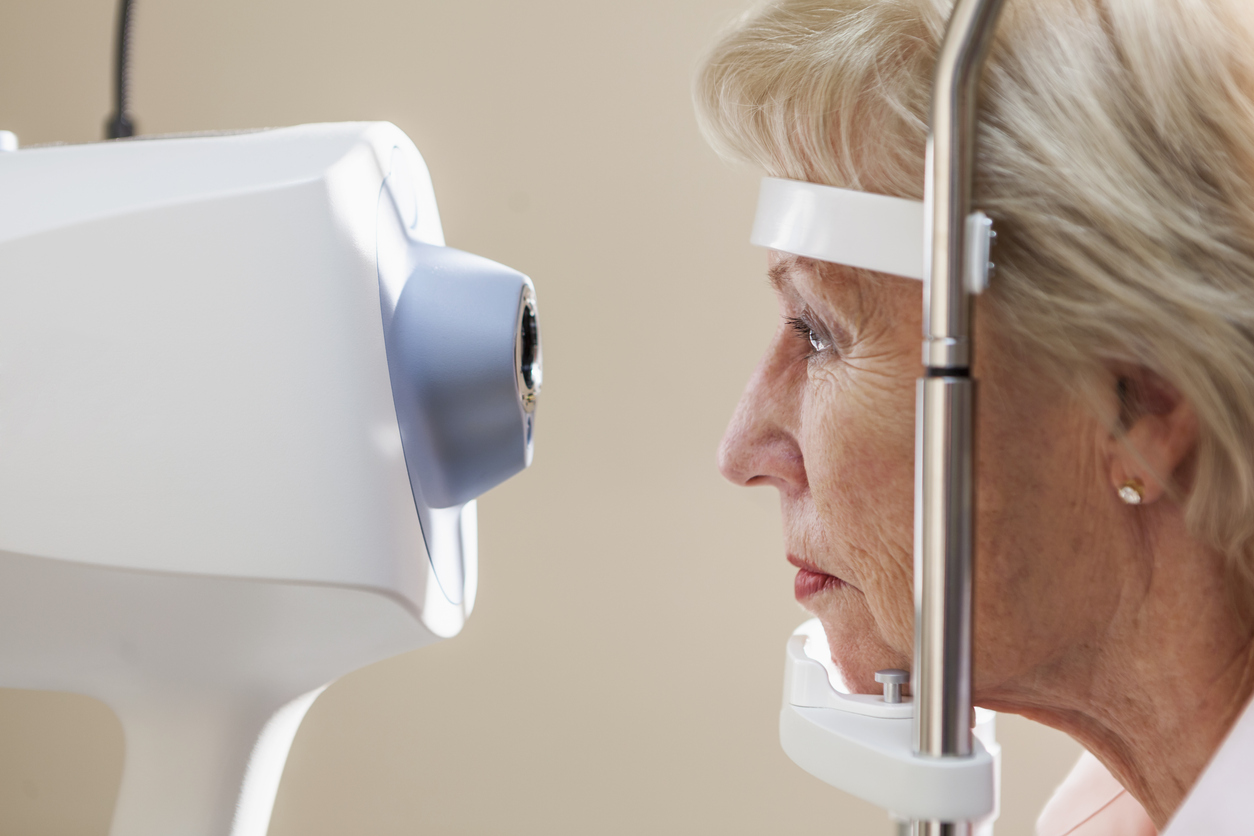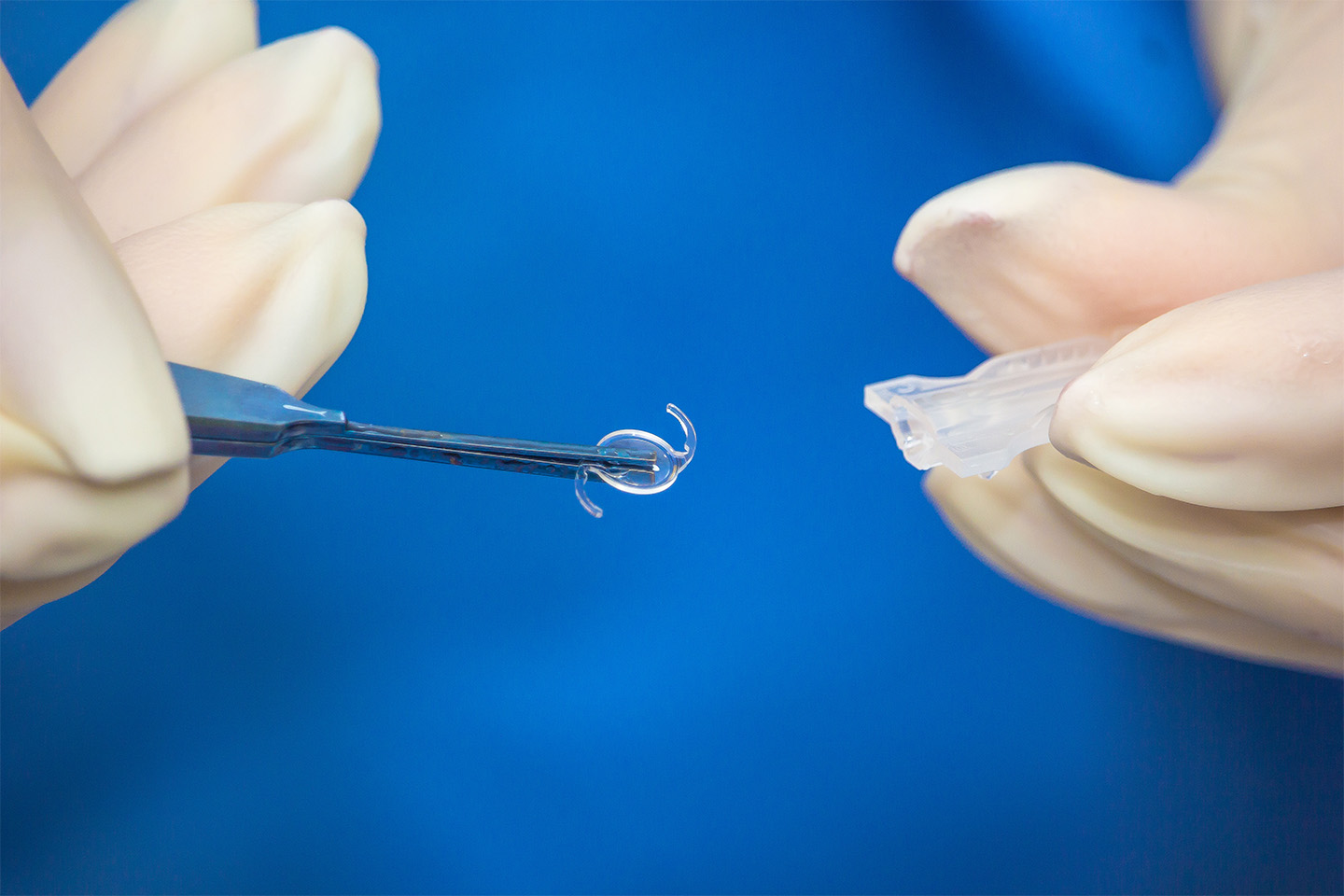Is Age-Related Macular Degeneration Hereditary?

Heredity and genetics are risk factors for age-related macular degeneration, but there’s more to the condition than that.
February is Age-Related Macular Degeneration Awareness Month, making this month a great time for patients to learn more about the condition and speak with eye care specialists about any concerns they might have. With age-related macular degeneration (AMD) classified as the most common cause of vision loss for Americans over 50 — about 10 million people in the United States are affected by it — it’s important to get the conversation started with your doctor, especially if you’re nearing or past your 50th birthday.
To that end, there are some AMD questions that eye care specialists answer on a regular basis. For example, many patients are concerned whether a family history of AMD will affect their chances of developing the condition — and if so, to what extent. Although doctors can’t tell you with 100% certainty whether you’ll develop AMD, they can speak with you about preventable and unpreventable risk factors that can contribute to your chances.
What is AMD?
AMD, as the name suggests, damages the macula and most often affects those 50 or older. The macula is located near the center of the retina and is responsible for helping us see objects in fine detail.
For some, AMD develops so gradually that it’s difficult to tell you even have the condition or to notice that your vision is deteriorating. For others, AMD can set in quickly and lead to vision loss on a much shorter timeline.
On its own, AMD does not cause blindness, but it can create complications for those leading an active lifestyle. Because the macula allows us to see things clearly, damage to the macula can make it difficult to read, drive, or discern individual faces. After a time, it’s possible for AMD to leave blank spots in your field of vision.
What are its Risk Factors?
There is no known cure for AMD and it’s not possible to tell with 100% certainty whether someone will develop the condition. However, there are risk factors that may indicate a predisposition toward AMD — some preventable and others not.
For instance, smoking increases your chances of developing AMD two to three times. Unprotected exposure to sunlight — blue wavelengths specifically — can cause damage to the macula that can lead to AMD. Your diet can also play a role, too. Americans who eat a lot of artificial fats and processed foods, who have high cholesterol, and who don’t consume enough vegetables increase their odds of vision loss through AMD.
Do Heredity and Genetics Play a Role?
Unfortunately, heredity and genetics do play a role in AMD. While a family history of the condition doesn’t guarantee that you’ll develop it, too, your chances are higher. Experts say that, if a parent or sibling has AMD, you’re three to four times more likely to develop it yourself.
If you’re concerned about AMD and have a family history of the condition, there are tests you can take to better understand your risk. For instance, there are tests available that combine pharmacogenetic and prognostic DNA methods to determine your genetic risk profile and your chances of progression to advanced AMD.
Who Can I Talk to about AMD?
Because AMD is so common, eye care specialists will be ready to speak with you about the condition whenever you have any questions. If you’d like to get that conversation started sooner rather than later, consider scheduling a consultation with ICON Eyecare today. Together, our team can help you better understand your chances of AMD, accurately diagnose you if you already have the condition, and devise a treatment plan based on your specific needs.
Request An Appointment.
Give us a phone call at (970) 256-0400 Monday – Friday, 8am-5pm to schedule a consultation.










 (970) 256-0400
(970) 256-0400